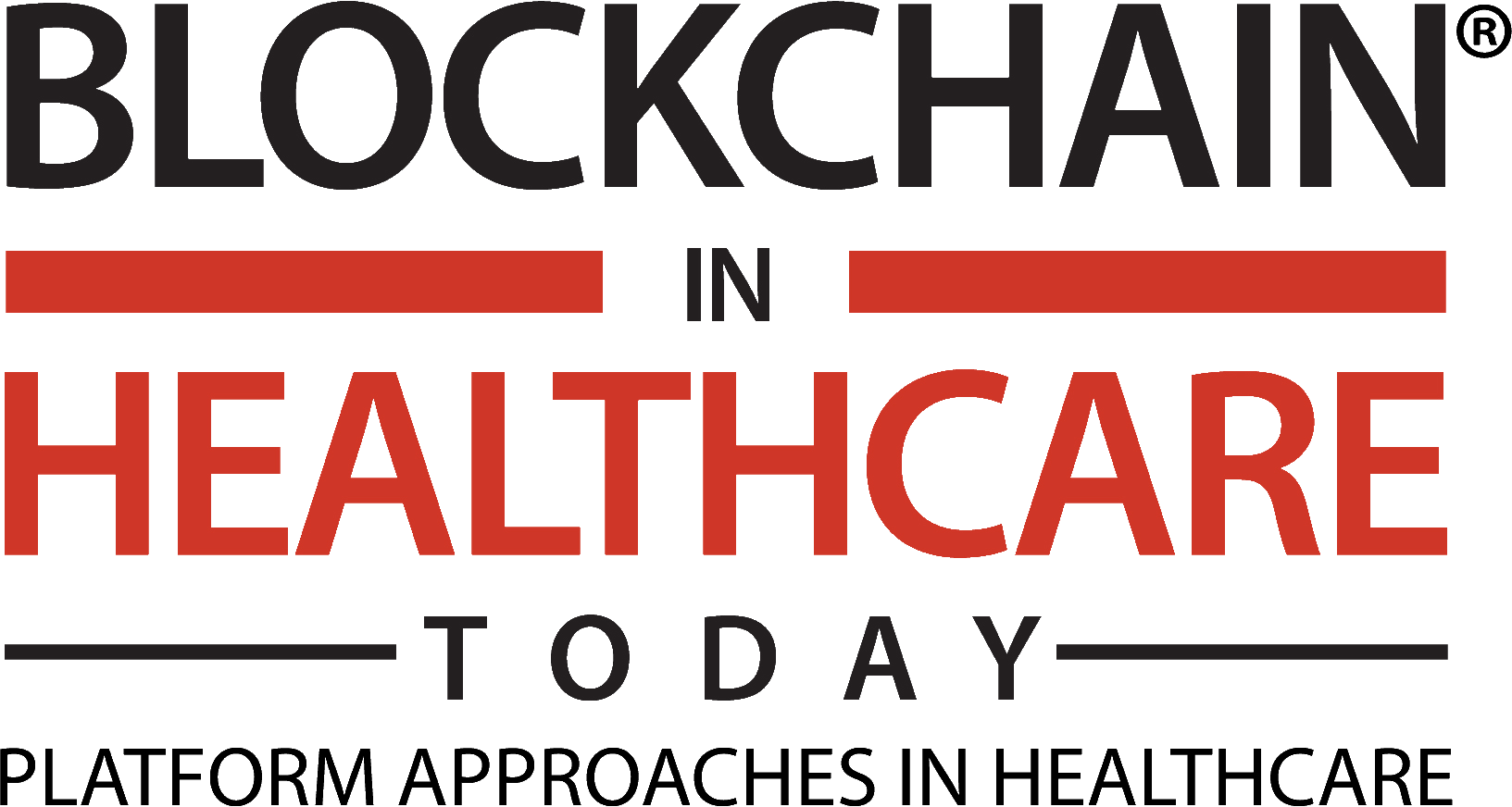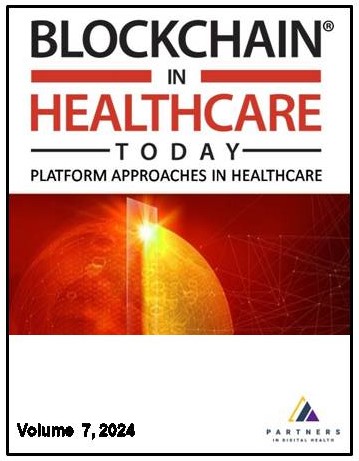Current issue
Archive
See all
Volume 7, Issue 2, 2024
Volume 7, Issue 1, 2024
Volume 6, Issue 2, 2023
Volume 6, Issue 1, 2023
Volume 5, Issue 3, 2022
Volume 5, Issue 2, 2022
Volume 5, Issue 1, 2022
Volume 4, Issue 1, 2021
20.12.2024.
Original Research
Tracing the Blockchain Challenges in Healthcare: A Topic Modeling and Bibliometric Analysis
The application of blockchain technology to healthcare offers promise in providing solutions to some key challenges related to data sharing, privacy, security, and access control. There are however several barriers preventing blockchain adoption from spreading widely, which has prompted research efforts. This study aims to conduct a bibliometric analysis of 196 documents, indexed in the Scopus database, to examine the structure, impact, contributors, and journals. Also, topic modeling is applied to give new knowledge on the latent topical structure of this literature. As a result, five critical challenges have been identified regarding the use of blockchain in healthcare including data privacy/security, scalability, governance, interoperability and standards, and cost.
Mohammad Mehraeen, Laya Mahmoudi
23.03.2018.
Use Cases
Creating a Patient-Centered, Global, Decentralized Health System: Combining New Payment and Care Delivery Models with Telemedicine, AI, and Blockchain Technology
Over the past decade, there have been many innovations in new payment and care delivery models and technology, from telemedicine to artificial intelligence (AI) to blockchain. These innovations, however, must be used in tandem to drive real change. We review each of these innovations and propose a model for how they can be combined to be greater than the sum of their parts. In doing so, we can create a global, decentralized health system that truly puts patient care at the center, while supporting and further enabling the clinicians who make this care possible, to deliver higher quality care at a fraction of the cost.
Kenneth Antonio Colón
16.12.2024.
Conference Presentations
Leveraging Blockchain and AI for Pharma Supply Chain Efficiency
The presentation discusses the potential of blockchain and AI to revolutionize the pharmaceutical supply chain. The author, with a rich history in healthcare technology, highlights the inefficiencies and challenges faced by the industry, particularly in areas like drug discovery, manufacturing, and distribution. Blockchain technology, with its ability to create immutable records, can enhance transparency, traceability, and security across the supply chain. This can help in tracking the journey of drugs from raw materials to the final product, reducing the risk of counterfeiting and ensuring quality. AI, on the other hand, can optimize various processes, such as drug discovery, clinical trials, and supply chain logistics. By analyzing vast amounts of data, AI can identify patterns, predict trends, and make informed decisions. This can accelerate drug development, improve manufacturing efficiency, and optimize inventory management. The integration of blockchain and AI can create a powerful synergy, leading to significant improvements in the pharmaceutical supply chain. This includes enhanced patient safety, reduced costs, and faster time-to-market for new drugs. The presentation provides a concise view of the health care supply chain processes and discusses AI patterns such as RAG, GAM and Fine-Tuning methods such as LoRA and QLoRa that can help in building trust in the supply chain.
Mohan Venkataraman
23.03.2018.
Use Cases
A Pragmatic Solution to a Major Interoperability Problem: Using Blockchain for the Nationwide Patient Index
Associating the health-related records and transactions of patients with their numerous “identities” as they interact with different healthcare providers, payers, pharmacy benefit managers and other entities is an expensive and complex problem. With many years of experience addressing this issue in different healthcare systems and Health Information Exchanges (HIEs), it is apparent that there is now a compelling and relatively straightforward technical solution for this problem. Presented here is a broadly feasible and technically compelling argument for a blockchain-based approach to addressing these issues. At the same time, challenges ahead and potential strategies to address them are discussed.
Michael L. Gagnon, Grant Stephen
30.04.2024.
Use Cases
Non-Fungible Tokens for Organoids: Decentralized Biobanking to Empower Patients in Biospecimen Research
Introduction: Scientists use donated biospecimens to create organoids, miniature copies of patient tumors1 that are revolutionizing precision medicine2 and drug discovery. However, current biobanking platforms remove patient names to protect privacy, precluding communication of health information and research findings between bench and bedside3. We leverage tokenization, transparency, and privacy-preservation of blockchain technology to advance a decentralized biobanking prototype empowering patient engagement in organoid research. Methods: We design and develop a proof-of-concept NFT framework4 for a simulated human cancer model research network. Our implementation deployed multiple smart contracts on Ethereum test networks which minted NFTs representing each stakeholder, biospecimen, and organoid, a NodeJS server using a Metamask wallet to interact with blockchain through an Infura hosted node, and a Flutter mobile application connected to a Firebase Database to demonstrate biobanking activities. Results: Our prototype demonstrated the viability of NFTs representing patients, physicians, scientists, and organoids while preserving privacy, and displayed how decentralized biobanking could be integrated into existing biobanking platforms5. The application featured key activities for patients, including biospecimen tracking, the ability to view organoids, learn about ongoing studies, and peer-to-peer communications with scientists. Discussion: Our prototype demonstrates proof-of-concept for a web3 platform that engages patients, physicians and scientists in an privacy-preserving organoid community. Further research is needed to advance decentralized biobanking features, encapsulating complex organoid research activities, and to assess feasibility and acceptability of implementing our approach.
William Sanchez, Larue Linder, Robert Miller,, Amelia Hood, Marielle Gross
20.04.2024.
Conference Presentations
EHR Systems and Blockchain: Potentials, Challenges and the Road Ahead
Panelists discuss blockchain technology use for electronic health records, and specifically delve into the benefits that blockchain brings to EHRs, but also discuss what its pitfalls and limitations are; including presenting perspectives from academia, and examplesfrom practitioners. Learning Objectives Understand the potential applications of blockchain for electronic health records (EHRs). Explore the benefits and challenges of implementing blockchain for EHRs, including security, interoperability, privacy, and data integrity. Identify key use cases and real-world examples of blockchain implementation in healthcare and EHR management. Analyze the potential impact of blockchain on improving healthcare data exchange, patient consent management, and medical research. Discuss the regulatory and legal considerations associated with using blockchain in healthcare, such as compliance with data protection laws and standards. Examine the role of smart contracts and decentralized applications (DApps) in enhancing EHR management and patient control over their health information. Assess the scalability and performance limitations of blockchain technology in handling large-scale healthcare data and high transaction volumes. Evaluate potential cost savings and efficiency gains achieved through blockchain implementation in EHRs, considering factors such as data access, auditability, and administrative overhead. Discuss the future prospects and challenges of integrating blockchain with existing healthcare systems, standards, and infrastructure to achieve widespread adoption and interoperability.
Jim Poteet, Mike Gault, Anjum Khurshid, MD, PhD, Suresh Sivagnanam, Alex Norta, PhD, Moderator: Horst Treiblmaier, PhD
01.07.2022.
Conference Presentations
Opportunities and Challenges of Swarm AI for Decentralized Clinical Research
Swarm learning opens new opportunities for collaboration and innovation in clinical research where all members of the swarm have equal rights. Only algorithms and parameters are shared – with no central authority. Swarm creates many new opportunities in clinical research to develop new therapeutics, epidemiology, genetics research and more. This session will unlock swarm principals, challenges and opportunities in clinical R&D driving wider adoption of its application(s) in the health domain.
Key learnings will include:
- Understanding the differences between federated machine vs swarm learning
- The technical, policy and application barriers when it relates to transferring significant amounts of data
- The steps and frameworks needed to drive wider understanding and adoption of the technology in clinical R&D
- The pharma perspective: where does Swarm AI offer new solutions yet to be introduced to the drug development process
Maria Palombini, Joachim L. Schultze, Krishnaprasad Shastry, Vikram Shetty
24.11.2023.
Editorial
Blockchain Technology Predictions 2024: Transformations in Healthcare, Patient Identity and Public Health
In an era characterized by the convergence of cutting-edge technologies, the world of healthcare and public health is on the brink of a profound transformation that will shape the future of medicine and wellness. This transformation is not merely an incremental step forward; it is a paradigm shift. It is driven by the synergistic integration of digital twins, blockchain technology, artificial intelligence (AI), and multi-omics platforms, collectively propelling us into uncharted territory. The integration of these innovations holds the potential to rewrite the rules of engagement in clinical trials, revamp the strategies for preventing public health crises, and redefine the way we manage, share, and secure healthcare data. As we embark on this journey of exploration and innovation, we find ourselves at a pivotal juncture, akin to the invention of the microscope in biology or the discovery of antibiotics in medicine. We are at the crossroads of a new era, one that teems with immense promise and transformative power.
Gianluca De Novi, PhD, Natalia Sofia, PharmD, Msc, Ingrid Vasiliu-Feltes MD EMBA, Christine, Yan Zang, PhD, Frank Ricotta


